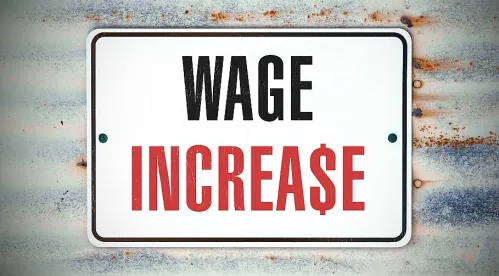On November 16, 2021, the Department of Labor published a Final Rule implementing Executive Order 14026 and raising the federal contractor minimum wage to $15 per hour under most federal government contracts entered into after January 30, 2022. The Final Rule also increases the minimum wage for employees who regularly receive tips to $10.50 per hour and will eliminate the ability of contractors to take a tip credit effective January 30, 2024.
Beginning January 30, 2022, federal agencies will be required to include a contract clause imposing the increased minimum wage in the following types of government contracts:
-
Procurement contracts for construction covered by the Davis-Bacon Act;
-
Contracts for services covered by the Service Contract Act;
-
Concessions contracts;
-
Contracts with the federal government in connection with federal property or lands and related to offering services for federal employees, their dependents, or the general public.
Contractors subject to the clause must flow the minimum wage requirement down to subcontractors who work on the covered contract. The clause will not be included in federal grants, certain contracts with Indian Tribes, contracts excluded from the Davis-Bacon Act or Service Contract Act, contracts performed outside the United States, and contracts for manufacturing or furnishing materials, supplies, articles, or equipment.
As in the Notice of Proposed Rulemaking preceding the Final Rule, employees are entitled to receive the increased minimum wage if they perform services “on or in connection with” a federal contract. Employees perform services “on” a federal contract when they directly perform the services called for by the contract. Employees perform services “in connection with” a federal contract when they perform services that are not required by the contract, but are necessary to the performance of the contract’s services, such as security, maintenance, or janitorial work at facilities that perform federal contract work. Workers who only perform “in connection with” a federal contract are not subject to the minimum wage requirement if they perform less than 20% of their work time on performing services “in connection with” the contract.
As in the Notice of Proposed Rulemaking, the final rule does not create a private right of action for employees to sue contractors for unpaid wages. However, employees can submit complaints to the Department of Labor, which may result in sanctions for failing to pay the increased minimum wage. These sanctions can include withholding of contract payments from the prime contractor, the termination of contracts, and debarment from federal contracting.





 />i
/>i

